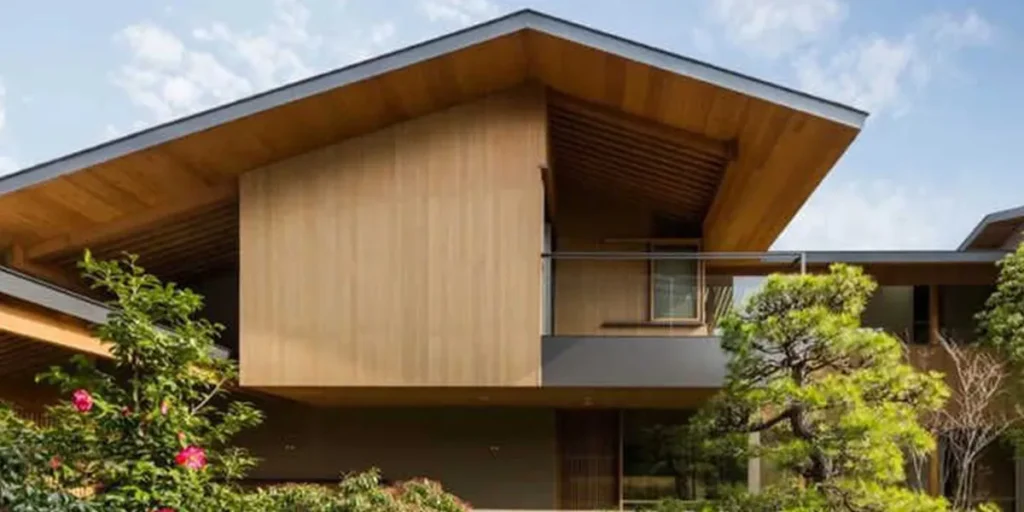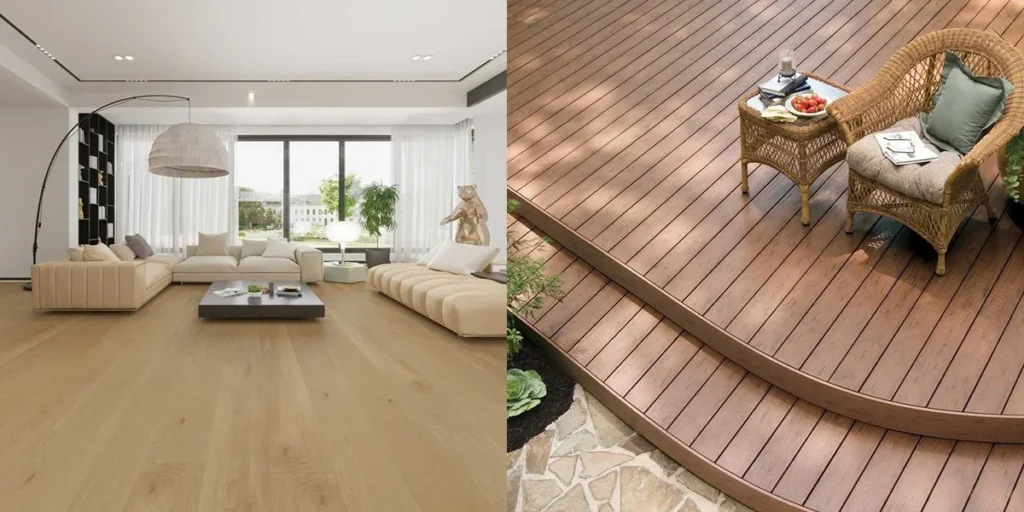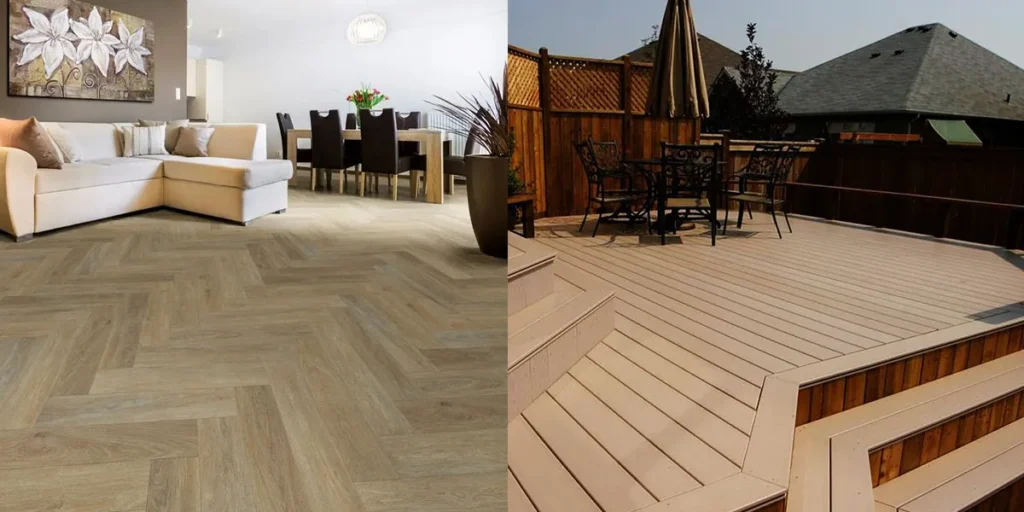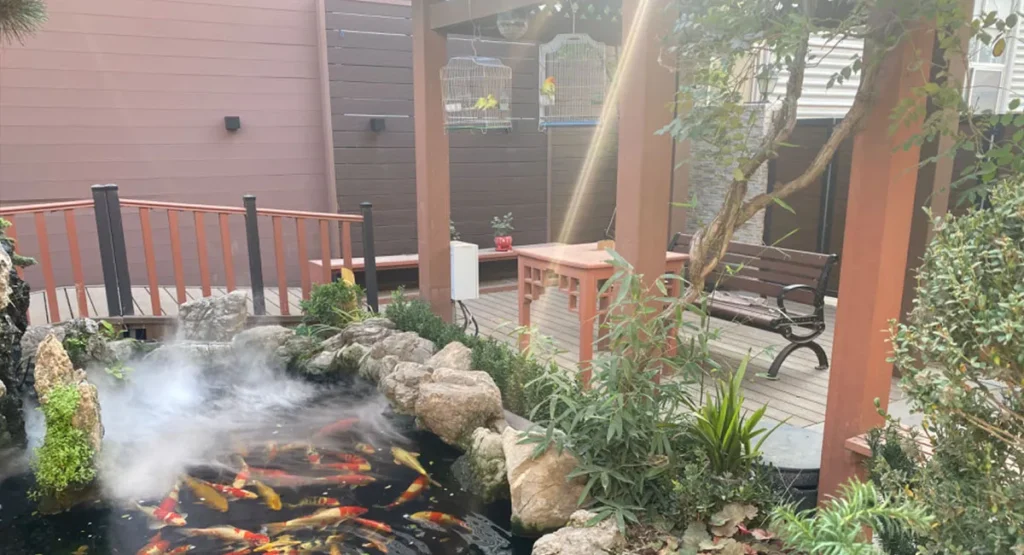Composite Pergola
A composite pergola is a stylish and durable outdoor structure that provides shade, shelter, and aesthetic appeal to any outdoor space. Made from a combination of wood fibers or flour and plastic resins, composite pergolas offer several advantages over traditional pergola materials like wood, vinyl, or metal. Here are some key aspects and benefits of composite pergolas:
- Durability and Longevity:
- Composite pergolas are known for their exceptional durability and longevity. The combination of wood fibers and plastic resins creates a material that is resistant to rot, decay, insect damage, and weathering. Unlike traditional wood pergolas, composite pergolas do not warp, crack, or splinter over time, ensuring a long-lasting and low-maintenance outdoor structure.
- Weather Resistance:
- Composite pergolas are designed to withstand a wide range of weather conditions, including extreme heat, cold, rain, and humidity. They are resistant to fading, warping, and discoloration caused by prolonged exposure to the sun’s UV rays, ensuring that they maintain their appearance and structural integrity for years to come. Additionally, composite pergolas are impervious to moisture, preventing issues like rotting and mold growth.
- Low Maintenance:
- One of the primary advantages of composite pergolas is their low maintenance requirements. Unlike wood pergolas, which require regular staining, painting, or sealing to protect against weather damage and decay, composite pergolas simply need occasional cleaning with soap and water to remove dirt, dust, and debris. This saves time, effort, and money on maintenance tasks, making composite pergolas a convenient and cost-effective option for homeowners.
- Eco-Friendly:
- Composite pergolas are an environmentally friendly alternative to traditional pergola materials. They are typically made from recycled wood fibers or flour and plastic resins, reducing the demand for virgin wood and minimizing waste. By choosing composite pergolas, homeowners can contribute to sustainability efforts and reduce their carbon footprint while still enjoying a durable and attractive outdoor structure.
- Design Options:
- Composite pergolas offer a wide range of design options to suit various aesthetic preferences and architectural styles. They are available in a variety of colors, textures, and finishes, allowing homeowners to customize their pergolas to complement their outdoor space. Whether you prefer a modern, rustic, or traditional look, composite pergolas provide versatility and flexibility in design choices.
- Easy Installation:
- Composite pergolas are designed for easy installation, making them suitable for DIY enthusiasts and professional contractors alike. The pergola components are lightweight and easy to handle, and they can be installed using standard tools and hardware. With interlocking components or a tongue-and-groove system, composite pergolas can be quickly and securely assembled, saving time and labor costs during installation.
In summary, composite pergolas offer numerous advantages over traditional pergola materials, including durability, weather resistance, low maintenance, eco-friendliness, design options, and easy installation. Whether you’re looking to create a cozy outdoor retreat, enhance your backyard landscaping, or add architectural interest to your outdoor space, a composite pergola provides a stylish and practical solution that will enhance your outdoor living experience for years to come.
In the dynamic realm of construction and interior design, the adoption of innovative materials like WPC (Wood Plastic Composite) has witnessed a surge in popularity. WPC wall panels and WPC wall cladding have emerged as frontrunners in this new era of building materials, offering a harmonious blend of functionality and aesthetic allure. WPC wall panels …
Advantages of Exterior WPC Wall Cladding and Interior WPC Wall Panel Read More »
When deciding between Stone Plastic Composite (SPC) and Wood Plastic Composite (WPC) flooring, cost is a significant factor to consider. Let’s delve into the cost comparison between these two flooring options and explore how they stack up against each other: Price Comparison: Installation Costs: Overall Value: While cost plays a significant role in the decision-making …
SPC vs. WPC – Evaluating Cost Considerations Read More »
In the realm of flooring, durability and stability are paramount considerations. Let’s delve into how Stone Plastic Composite (SPC) and Wood Plastic Composite (WPC) fare in these essential aspects: Construction Composition: Water Resistance: Temperature Stability: In the battle of durability and stability, both SPC and WPC flooring showcase commendable qualities. SPC’s high-density limestone core lends …
SPC vs. WPC – Unraveling Durability & Stability Read More »
Garden courtyards serve as tranquil havens within our homes, providing a serene escape from the hustle and bustle of daily life. As a cherished space for relaxation and rejuvenation, the decoration of a garden courtyard holds immense importance in enhancing its ambiance and allure. In today’s discussion, we delve into the myriad benefits of utilizing …
Elevate Your Garden with WPC Material: The Ultimate Decorative Solution Read More »




